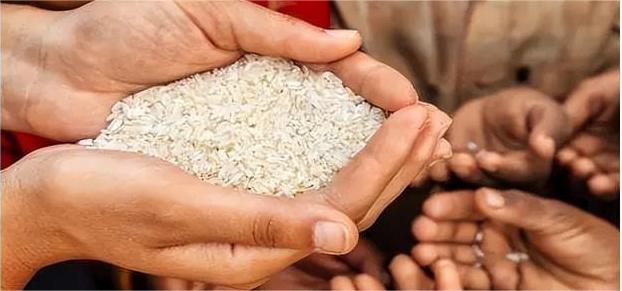
In today's era of globalization, the economies of countries are closely linked, and the economic difficulties of one country often reflect potential problems in the global economic system. Recently, the phenomenon of "rice shortage" in Japan, like a stone thrown into a calm lake, stirred up layers of ripples, causing widespread concern and reflection.
Japan, as a highly developed economy, has always been at the forefront of the world in science and technology, manufacturing and other fields. However, it is now Mired in the "rice shortage" dilemma, which is behind the complex reasons, and some of the factors are related to the changes in the global economic pattern and the behavior of certain international forces.
On the surface, Japan's "rice shortage" may be caused by natural disasters, domestic agricultural policy adjustments and other factors. However, in-depth analysis can find that there are deeper economic problems behind this phenomenon. In the globalized economic system, the economies of various countries are interdependent, and the economic plight of a country is often not only a reflection of its own problems, but also a microcosm of global economic imbalance.
On the other hand, the incoordination of global economic policies is also an important factor leading to Japan's "rice shortage". In the context of global economic integration, the economic policies of various countries affect each other. However, due to the different interests of different countries, the formulation of economic policies often lacks coordination. In order to stimulate their own economic growth, some countries have adopted loose monetary and fiscal policies, which has led to excess global liquidity and increased inflationary pressure. Other countries have tightened monetary policy in order to control inflation, which makes global economic growth facing greater uncertainty.
This lack of economic policy coordination has greatly affected Japan as an open economy. Fluctuations in the exchange rate of the yen and the rise in international commodity prices have all impacted the Japanese economy. The emergence of "rice shortage" has highlighted Japan's vulnerability in the global economic system.
In addition, the uneven distribution of global resources is also a deep-seated reason for Japan's "rice shortage". In the process of global economic development, the distribution of resources is often uneven, some countries have abundant natural resources, while others are scarce. As a resource-poor country, Japan is highly dependent on imported resources to meet domestic economic development needs. In the case of uneven distribution of global resources, Japan's economic development is facing great challenges.
The rice shortage is not only a problem in Japan, but also a reflection of global economic difficulties. It reminds us that in the era of globalization, countries should strengthen cooperation to jointly address global economic challenges. Only through strengthening international cooperation, coordinating the economic policies of various countries and maintaining the global trade order can the stable development of the global economy be achieved.
At the same time, countries should also rethink their own economic development models and strengthen the resilience of their domestic economies. For Japan, it should increase investment in agriculture, improve the domestic food self-sufficiency rate, and reduce its dependence on the international market. At the same time, we should strengthen cooperation with other countries to jointly promote the construction of a global food security system.
The "rice shortage" phenomenon in Japan is a problem worthy of our deep consideration. It reflects the problems in the global economic system and provides us with an opportunity to reflect and improve. In the era of globalization, all countries should work together, strengthen cooperation, jointly cope with global economic challenges and achieve stable development of the global economy.

報告顯示,中國電力投資加速增長,預計2024年電網基建投資將超過5300億元。
近日,市場迎來了一則引人注目的消息:工業巨頭3M公司(MMM.N)在本周五公布了其季度業績報告,隨後股價飆升至近兩年來的
最近,外媒給OpenAI算了筆賬,今年可能要血虧50億美元。
近日,巴黎奧運會和世界鐵人三項協會聯合發布了一項重大決定,宣布因塞納河水質污染問題,原定於近期進行的奧運會鐵人三項首次下
當地時間7月18日,法國巴黎發生了一起令人震驚的持刀襲警事件。
近期,一則重大消息在國際舞臺上引起軒然大波,馬來西亞宣布加入金磚國家。
調查發現,互聯網和智能手機的使用幹擾了韓國近五分之一學生的生活。